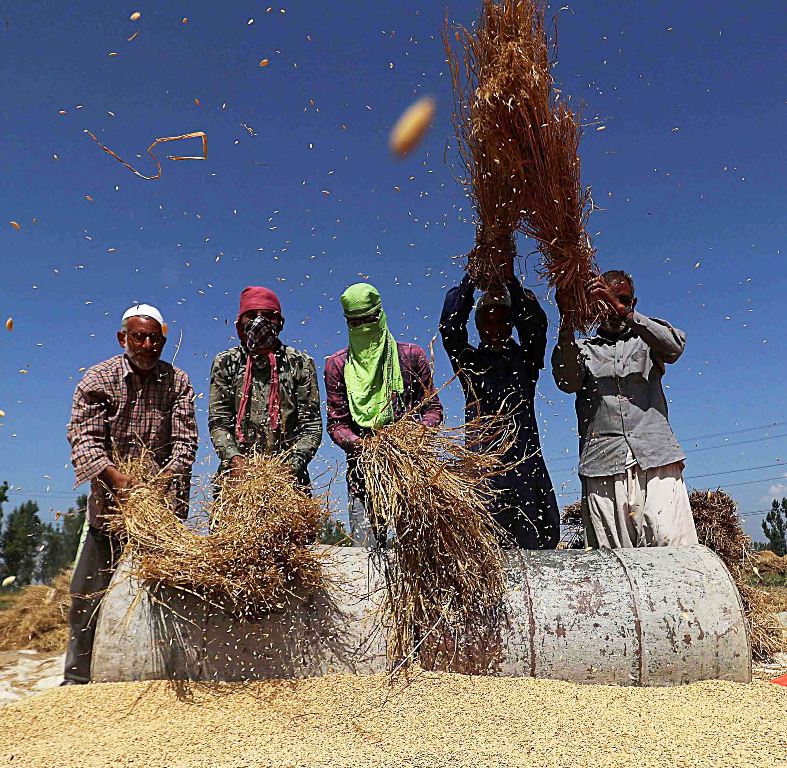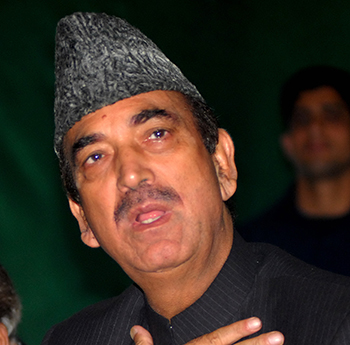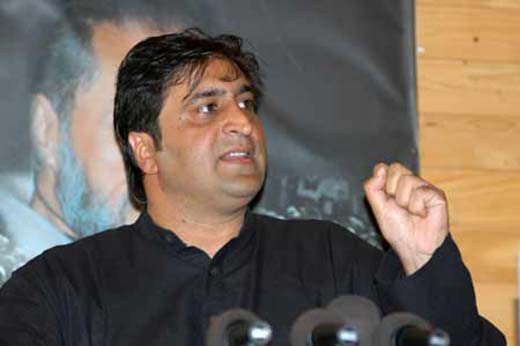by Khalid Bashir Gura
SRINAGAR: On a cool September morning, I along with my colleague boarded a maxi-cab to Baramulla from Srinagar. We were on a day-long itinerary to Lachipora (Uri), almost 120 km north of Srinagar. It is a village in Boniyar block, not far away from the Line of Control (LoC), the de facto border between the two halves of Kashmir.

The cab revved its engine but an old man refused to board the cab as he was irate with the fare demanded by the cab driver. “There is only a single seat available in the cab. Get in and he will leave. Okay, just give, Rs 50,” the route coordinator said to the unwilling old man. He refused to budge, however. “Ask your driver that I will not overpay,” said the old man.
Finally, the old man got into the cab and the doors were slammed shut and the driver revved the engine and accelerated the cab. Far away from the city’s din and dust, as we slid down window panes of the car, the fresh, cool morning breeze found its way to into the vehicle.
The vast drooping golden rice fields and the invisible cicadas singing on the green trees filled the cab with silence and made everyone broody.
On the way, many passengers boarded and de-boarded. A non-local hawker who boarded the cab midway barely after travelling a few kilometres had a shock in store for him. His face turned gloomy as the driver refused to pay back the crisp hundred rupees he handed to him. He couldn’t argue like an old man who was still in the cab. The hawker’s mouth was still ajar that the door was slammed closed and the driver rushed away leaving the non-local staring uselessly.
“Why did you overcharge him? He boarded the vehicle mid-way and still, you overcharged him,” I asked the driver curiously. “That is the rate,” came the driver’s curt reply, tersely. As we reached our destination and alighted, my colleague decided to pay the fare.
“How much?” asked Bilal Bahadur
“400,” replied the driver.
He paid without questioning.
We boarded another jam-packed cab from Baramulla to Chandanwadi and Chandanwadi to Wildlife Sanctuary.
Later, in the afternoon emerging back from lush green mountains full of brooks, we boarded vehicles back to next destined stops.
While driving back, a different world revealed itself – jam-packed roads, the noise of vehicles, commuters, customers shopping and the commotion of drivers at bus stops. All this we had missed because we left Srinagar too early, almost at 7 am.
As the cab halt at Srinagar, it was my logical turn to pay the fare.
“How much,” I asked the driver.
“240” replied the driver.
The reply astonished me as well as excited.
Unable to believe the disparity of rates for the return drive on the same route, I asked the driver to repeat.
“120” each!
The infuriated Bilal, who felt fleeced into paying an additional Rs 160 by the morning driver.
“I want to locate that driver,” said enraged Bilal helplessly.
Soon the realization descended that we are not the only ones to be fleeced and outraged by the transporters about whom almost everybody was concerned since August 2019. They had not moved out of their homes for months in last one year.

“Why do I have to pay the double fare if you are not following any SOP’s,” one of the commuters travelling from Rainawari to Lal Chowk argued with the driver and conductor. Even though all the seats of the bus were fully occupied, the driver of the bus continued to board passengers with every halt of the break at the sight of passengers.
“Even though I tried to withhold the extra fare that government has directed the passengers to pay on the condition that they move with half of the seats,” Abid Hussain of the resident of Srinagar said. The transporters are flouting the SOP’s. They move with full seats and overload and still seek double fare. “I was compelled by a conductor to pay the double fare. How can I pay double to risk my health simultaneously?”
As public transport was the worst affected in Kashmir due to successive lockdowns following August 5, 2019, and due to pandemic lockdown in March, the transporters were left to fend for themselves. Much to the respite of the crumbling sector, last month, in a State Executive Committee order on August 4, officials permitted the resumption of public transport operations with the boarding of 50 per cent passengers in minibuses and up to a maximum of four passengers in 10-seater maxi-cabs and two passengers in taxicabs and auto-rickshaws.
But transporters in Kashmir continue to flout SOP’s amid rising cases and deaths due to pandemic. Even though authorities have allowed transporters to ply on conditions that SOPs amidst pandemic will be followed. However, transporters continue to fleece commuters by overcharging them without adhering to SOP’s.

The overcharging is rampant and unchecked. There are instances in Srinagar and on most of the routes connecting the peripheral districts with Srinagar. The rates have doubled on all routes. What is interesting is that the drivers leave no seat vacant still charge double the fare. Interestingly, they avoid asking passengers to use facemasks. Most of them drive without facemasks, too.
A crisis is actually uploading in public transport.















